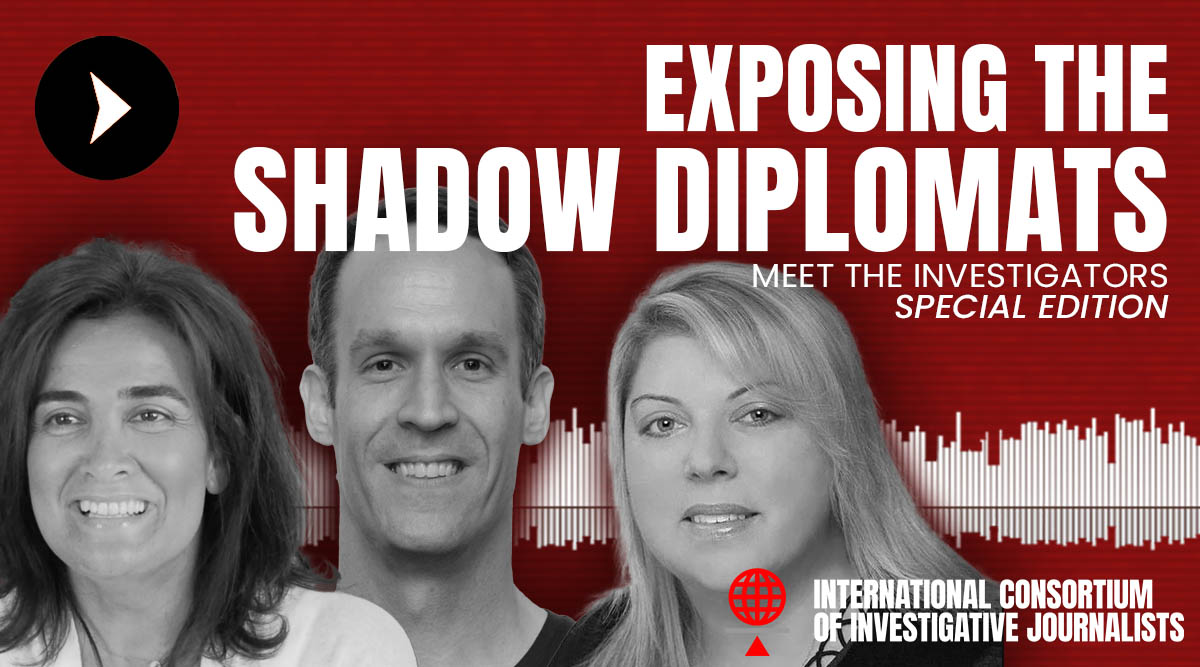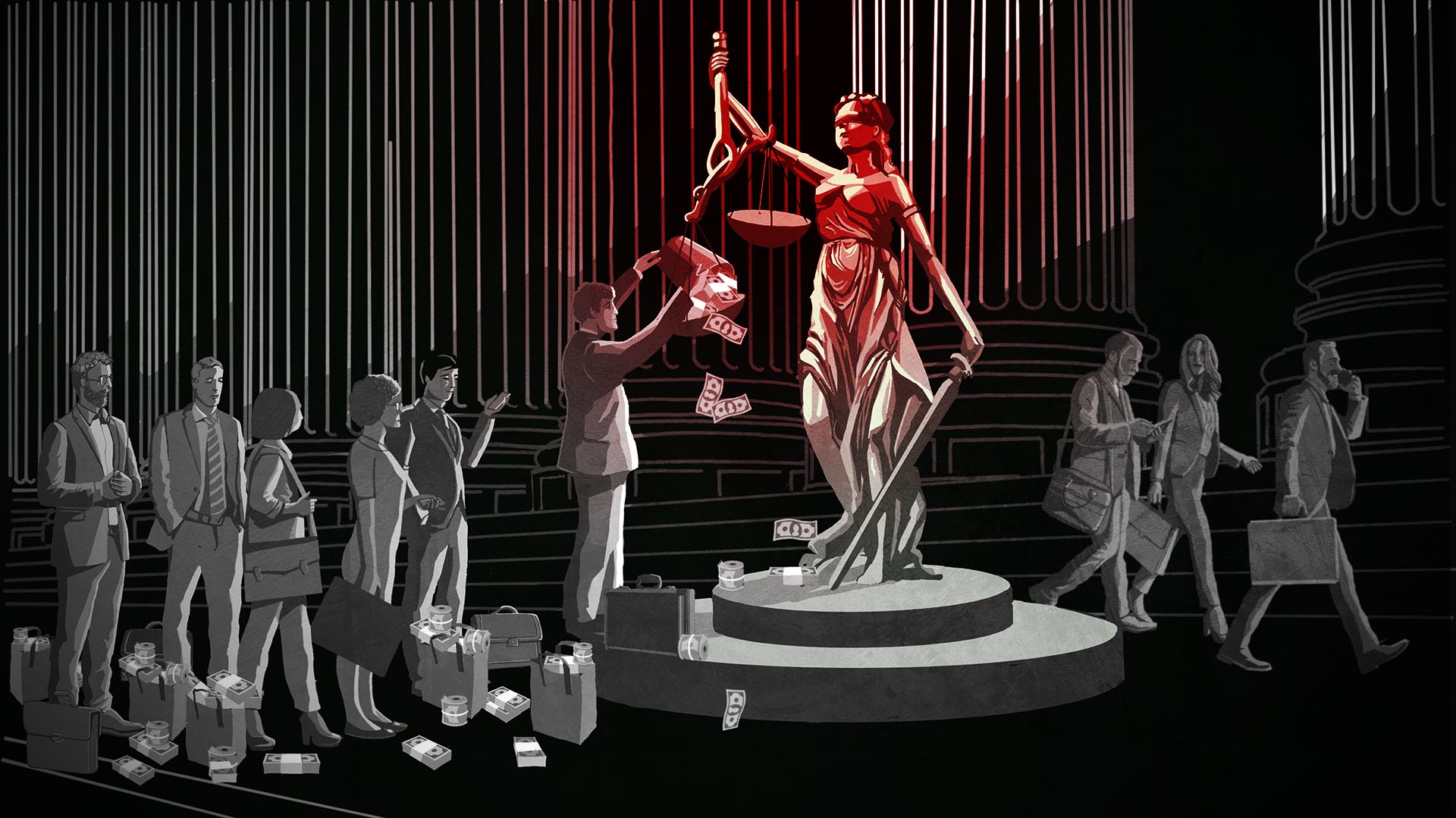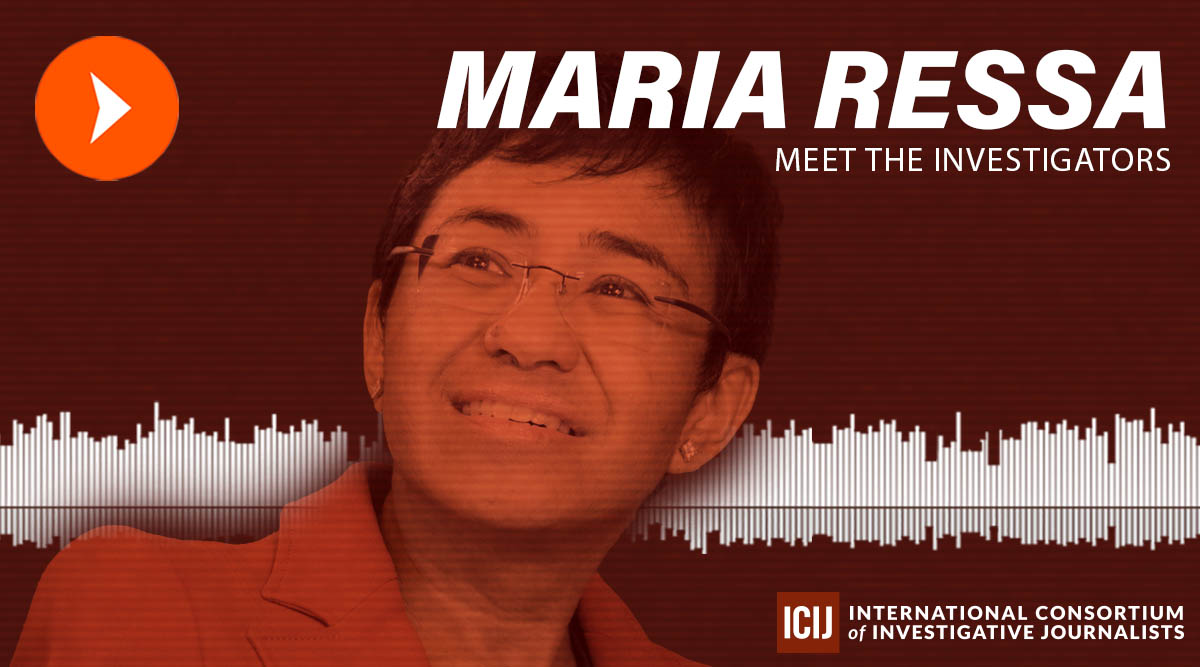MEET THE INVESTIGATORS
From crime fighting cop to corruption-busting reporter
Reporter Boyoung Lim originally started her career as an officer on the Korean police force, before realizing there were other ways to help people pursue justice and hold the powerful to account.
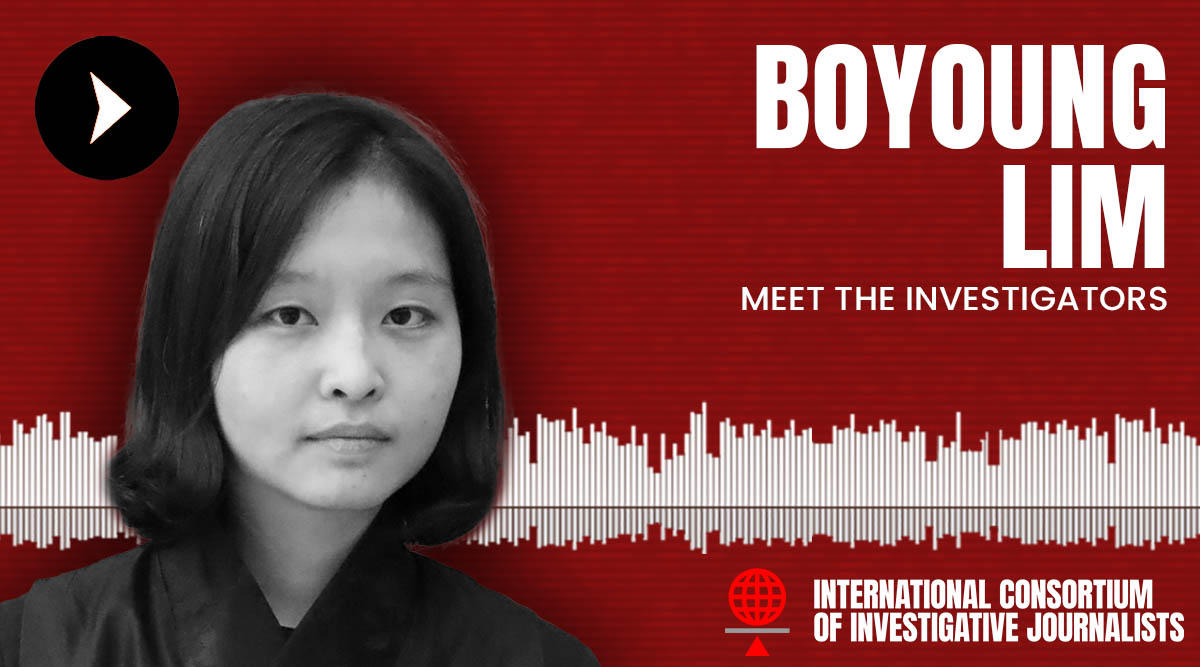
The International Consortium of Investigative Journalists collaborates with hundreds of members across the world. Each of these journalists is among the best in his or her country and many have won national and global awards. Our monthly series, Meet the Investigators, highlights the work of these tireless journalists.
For our first episode of the year, we spoke with Boyoung Lim, a police officer-turned-reporter who worked on some of the biggest investigations for KCIJ – Newstapa, an investigative news outlet in South Korea. Today, Lim is a senior editor at the Pulitzer Center, where she coordinates the Artificial Intelligence Accountability Network. The initiative supports journalists covering algorithmic surveillance and those using AI tools like machine learning for their stories.
This episode was originally published in January and sent to ICIJ’s community of monthly recurring donors, the ICIJ Insiders.
TRANSCRIPT
Nicole Sadek: Happy New Year! And welcome back to Meet the Investigators from the International Consortium of Investigative Journalists. I’m your host, Nicole Sadek. If you’re joining us for the first time, Meet the Investigators is a podcast where we sit down with one ICIJ member from across the globe and discuss their career path, their most challenging stories and their most helpful tips.
Today, Boyoung Lim joins us. Boyoung is a South Korean reporter now working at the U.S.-based Pulitzer Center, an organization that supports independent journalists. Like others we’ve interviewed, Boyoung’s path to journalism wasn’t a straight line. In fact, you’d probably never guess the trajectory her career took.
Boyoung Lim: I never really imagined myself being a journalist, honestly. I always dreamed of becoming a police officer. But I also realize looking back that I was kind of a news junkie for my age. So I would always read newspapers, and I was always attracted to crime stories. And there was a section for crime. And I was always reading it. And I, in my naive and young mind, I thought that being a police officer could be a way to help people and serve the community.
Nicole: Boyoung achieved her dream job after she graduated from the Korean National Police University.
Boyoung: I worked on cybercrime investigations while I was a police officer, and I think that made me start to think about international cooperation because, you know, cybercrime, unlike other traditional types of crime, happen on a global scale. You could find the crime victim in South Korea, but the server is in Taiwan, and then the attacker might be located anywhere else in the world, which really required police officers and my department at the time to work with not only law enforcement from all over the world, but these IT companies, platform providers, and you have to work together to actually solve the crime. And that really affected me on how I see things in the world. So it kind of came natural to me whenever I joined my first newsroom in South Korea that you have to work together with others.
Nicole: What other skills did you pick up as a police officer that transferred to journalism?
Boyoung: If you work on the streets as a patrol officer, you don’t know who you’re going to encounter every day. Like sometimes they might be threatening, sometimes not. You have to be ready for every situation. And that made me be less shy. I grew up as a shy kid, but I think it helped me approach people, complete strangers, just in a very natural way. So that gave me a lot of practice on the streets just talking to people.
The main difference, I would say is, in some ways, police investigators have it more difficult in some ways and have it easier some ways. The reason why they’re having it easy is because they have the legal powers to force someone to come to their office and meet with them, or you can arrest someone, or you can collect evidence against the will of someone, whereas a journalist, I think, it’s much harder to do that. You don’t have any legal authority to do those things.
But I think whenever I made the transition, I realized that I was relying on the police authority that came with the job. So I was having it easy. So it was kind of difficult when I made that first phone call to someone, and I was introducing myself as a journalist and not a police officer, the weight of my introduction was lighter, I felt, and the person on the other end was like, “So what? Why do I have to talk with you?” But in other cases, I found that it’s much easier to talk to people as a journalist than a police officer, because people, some people are skeptical of law enforcement in general, they don’t want to talk or have anything to do with police officers.
I was thinking, wow, like journalists actually can and do change the world. Why didn’t I ever think about the power that journalists can have by uncovering the truth and sharing it with the public?
Nicole: Why did you make the switch to journalism?
Boyoung: I should start off by talking about why I left the police, why I walked away from my childhood dream job. There were huge, huge demonstrations in South Korea several years ago.
[Audio clip, Al Jazeera English]: Seoul hasn’t seen clashes like this for many years. The increasingly polarized politics of this country at last bubbling over. At stake, two key issues: the conservative government’s attempts to reform labor laws and its drive to produce its own history textbook for use by all children in the country.
A farmer who was participating in the protest got hit in the head by a police water cannon. He fell into a coma for nine months, and then he passed away. I was working at the headquarters at the time, and I was not related to any of the departments involved in that case. And I remember how the police leadership were denying any sort of responsibility, not even a “sorry” for someone who was just exercising his own rights and then got hit in the head with a police water cannon directly. And I think I was naive, and I expected them to at least admit some wrongdoing or take some responsibility, but there was none. And I was there, translating the words of the leadership, who were obviously more concerned about saving the face of the regime than the life of this farmer. And I couldn’t, I just couldn’t live with that shame. I was so ashamed, and I had to walk away from that.
I left the police with no plans at all, so I started freelancing. I think I was also resuming my news junkie habits, and I was following the news obsessively. And that was when the corruption scandal that led up to former President Park Geun-hye’s impeachment was happening. And I was thinking, wow, like journalists actually can and do change the world. Why didn’t I ever think about the power that journalists can have by uncovering the truth and sharing it with the public?
Nicole: It wasn’t long before Boyoung came across Newstapa, the Korean Center for Investigative Journalism. Newstapa is South Korea’s first nonprofit investigative journalism center, and it’s focused on revealing wrongdoing of power. Boyoung was drawn to Newstapa’s accountability reporting, so she applied for an open admin position. She didn’t get the job, but her background as a police officer piqued the interest of the editorial team.
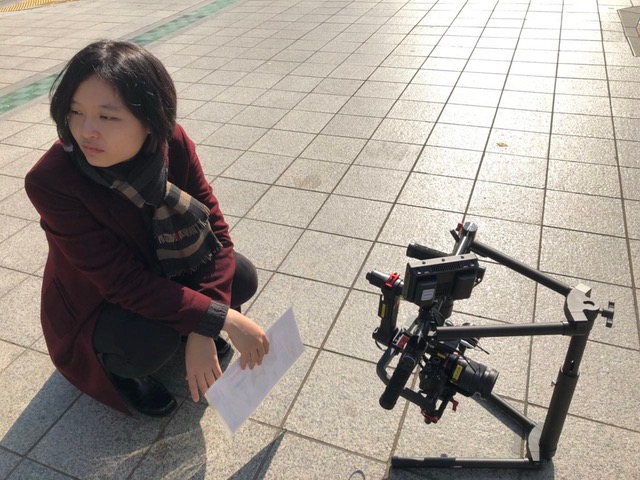
Boyoung: They called me the next day and said, we want to have another interview. My former boss and also ICIJ member, Yong Jin Kim, he met with me and said, “Hey, so you didn’t get that job you applied for, but you might find, you know, trying investigative reporting interesting and this is what you do. Are you interested?” I just, you know, thought that what he was offering sounded like what I enjoyed in the police. And that’s how I stumbled into journalism without having any background knowledge or any training on journalism.
Nicole: Among the most fascinating stories Boyoung worked on was an investigation into pseudo-scientific journals. Reporters at the German broadcaster NDR approached Newstapa and said they had found several Korean names published in sham journals. Soon after, Newstapa joined NDR to investigate. And their reporting process was truly original. They decided to submit their own research paper and attend a scientific conference undercover.
Boyoung: What we did during the investigation was to auto generate with one click an academic paper that we didn’t write at all. It just automatically puts in all the weird sentences that don’t make any sense at all, if you read it, but it got accepted. So our investigation team went to Venice to do an undercover reporting on the silly conference that they have. But when we actually scraped the data from all of these well known pseudo-scientific journals, we found that Seoul National University, the top university in the country, had the most names and the number of papers published. And then Yonsei University, I think, led, followed. And the really funny thing was, it was not just South Korea, it was also North Korea, North Koreans. North Korea’s top university scholars, researchers, were going to these predatory conferences. So it was really, really revealing in that all of these systems that are meant to be encouraging research and trying to help Korean scholars and researchers to be world class was actually just a set of checkboxes where you just publish a paper with a journal that was not vetted at all, just pay money with the research funds that the government provides.
Nicole: Newstapa produced a documentary on the investigation, but there’s one scene that didn’t make it in.
Boyoung: We went after the professors and one — and I, I just so regret that I left too much on the scene because we couldn’t use the footage because I laughed too much on camera — but we were talking to one of the professors in his research lab and he had sent a lot of his students to these conferences and predatory journals. So we asked him, “Did you know about these journals? Did you vet them? Why did you suggest your students submit papers to these journals that obviously look a bit shady?” And his response, suddenly, he was very friendly at the beginning, but then his attitude completely changed. And he said, “You know, you journalists should focus more on good news than bad news. If you keep focusing on the bad stuff, or try to dig up bad stuff, you’re gonna go to hell. I’m telling you, you’re gonna go to hell.” And, you know, I just, I thought it was just so funny. I should have suppressed my laughter and we could have used that footage. It would have been great, but that’s one crack in the jade that I regret doing on that investigation.
Nicole: During her time at Newstapa, Boyoung participated in several ICIJ collaborations, including the Implant Files, an investigation into the poor regulation of medical devices.
Boyoung: I honestly didn’t know anything about medical devices before I participated. And honestly, it felt like I was trying to dig a hole in a cement ground. It felt like, I don’t know where to start. But then I started doing some research, calling people and by chance, I encountered this patient who was affected by a defective hip implant, not only once, but twice. And the second surgery was, I think the first surgery was after the first recall. And he suffered so much. And it was a difficult project for me because of the emotional weight and the weight of the harms and the sufferings of these patients. It’s just so difficult to talk to them all the time. And, and they would unload a lot more than you want them to.
Nicole: That wasn’t the only time Boyoung faced challenging interviews. She spoke with vulnerable communities for China Cables, an investigation into the surveillance and internment of Uighurs and other Muslim minorities in Xinjiang.
Boyoung: There was less than 10 people, 10 Uighur people in South Korea at the time, and I met two of them. Eventually I couldn’t write the stories on them because they were scared of their refugee status being rejected if their stories were broke, so I respected that and I didn’t write about them. But with their help I found another Uighur who was in South Korea and left South Korea, so I wrote one story based on the interview I had with him. And it was just heart wrenching to, you know, actually find the human story of this investigation based on leaked documents.
Nicole: Boyoung, you told us how you made the transition from the police force to investigative journalism. But how did you go from working as a shoe-leather reporter to working at the Pulitzer Center?
Boyoung: So it all happened during the pandemic. And frankly, I was quite burnt out after several years in the newsroom, so I wanted to take a break. And I also wanted to focus on issues that interested me. So after the China Cables project, I was fascinated by the algorithmic surveillance and how it impacts society and how governments are using it. So I was thinking, OK, I want some time for my own to focus on these issues and study them. So I resigned, this time again without any other alternative jobs. And I did some freelancing for a local newspaper, I did some freelancing for the Korea Press Foundation working on those issues. And then by chance, I came across this job opening. So I looked at it and I got excited, because, you know, I do love investigating myself, but I find myself to be doing much better and making more impact when I’m supporting others.
Nicole: At the Pulitzer Center, Boyoung leads the new Artificial Intelligence Accountability Network.
Boyoung: What we were trying to do is help journalists report on AI, but also report with AI. We are giving out reporting grants to those who have a good idea of using machine learning in their reporting, investigative reporting to amplify the reporting itself. But then there’s also the harm that we can’t see. And that is the AI Accountability Fellowship. Right now, we’re supporting 10 journalists from all over the world. And they are doing stories on AI in hiring and social welfare, policing, facial recognition, border control, and so on. So I won’t spoil the stories, the stories are still being published. But it’s basically empowering journalists to improve their AI literacy. We will have a call for proposals early next year, so I hope if you’re interested in AI reporting, you stay tuned or subscribe to our newsletter.
You will never regret following your heart, what your heart tells you to do. If something is not right, and you think that you need to make a change … then go for it.
Nicole: Boyoung, before we wrap up, what advice would you give to career switchers or people who are considering making a change in their careers?
Boyoung: Looking back, I never regretted decisions I made by following my heart. And you know, sometimes it can surprise you because you think you’re a certain type of person — you’re going to be in policing forever. I think in my case, I always wanted to work to help the world become more just, and sometimes, that could be a police officer. But sometimes, the police don’t do justice to this world. And so I think in my case, for a very long time, I was sad that I wasn’t able to keep my childhood dream job that I worked so hard to get. But then now, you learn more things and you meet more people, you realize that you bring something unique that only you have from your past job. You will never regret following your heart, what your heart tells you to do. If something is not right, and you think that you need to make a change to come clean for yourself or live with your conscience, then go for it and you won’t regret it.
Nicole: As far as New Year’s resolutions go, I think that’s a powerful one. We’ve come to the end of another episode of Meet the Investigators. Special thanks to Boyoung for her invaluable stories and advice. And thanks to everyone listening. We hope you’ll stay tuned and keep up with us as we produce more interviews like this one throughout the year.
My time as an ICIJ fellow has come to an end, which means, sadly, this is my last time in the host’s seat. Good news is you’ll be in excellent hands with ICIJ reporter Brenda Medina. Brenda will continue taking us behind the scenes as she sits down with investigative journalists from around the world.
Meet the Investigators is a production of the International Consortium of Investigative Journalists. This episode was produced and edited by me, Nicole Sadek, with help from Hamish Boland-Rudder. If you enjoyed the episode, please share it on social media using #MeetTheInvestigators.
